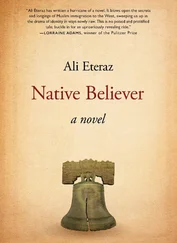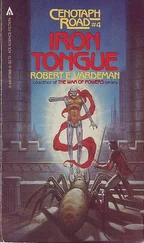Michaela shook her head, embarrassed. “It’s hard,” she said. “Hard to imagine. Things have changed so quickly.”
“Mmmm, I suppose so, child. But the situation that you are familiar with, where anyone with a few thousand credits who feels a little crowded can just move out to a frontier planet or asteroid and have all the room he wants… that’s very new . Why, I can remember when there was only one settlement in space, my dear! And to be able to go out to that one, miserable bare hardscrabble that it was, Mrs. Landry, you had to have an enormous fortune at your disposal. Long before frontier colonies became routine, child, we were all jammed in together on this planet Earth in a way that people today would literally find intolerable. And think what I would miss, if I were given a room of my own!”
She waved her hand for Michaela to look around the room, and the other woman had to smile. On almost every bed, sitting most carefully on the edge so that they would not joggle bodies already stiff and aching, were the little girls from Chornyak Household. They came running all day long, in flocks, back and forth between the two buildings. And every patient, unless she was so ill that she could not participate, had two or three little girls of various ages perched on her bed, holding her hand, and talking. Talking, talking, by the hour. If one left, another would come at once to take her place.
Old Julia Dorothy, whose voice was so weak that she could no longer carry on any vocal conversation, was as much the center of the hum of girlchildren as anyone else; while they went to the others to keep up their skills in oral languages, both Terran and Alien, they went to Julia Dorothy to hone their skill with Ameslan and sat on her bed with their fingers flashing and their faces moving constantly in the mobile commentary that went with the signs. Julia Dorothy couldn’t speak aloud, but her fingers were as nimble as spiders, and her old face with its wrinkles and seams was so articulate that at times Michaela — with not even the fingerspelling alphabet at her command — felt that she could grasp something of what Julia was signing.
These women, she had to accept it, were content. Ill, perhaps: feeble, certainly; old, beyond question. But content. They knew they filled a valuable role, that they were a resource without which the community of linguists could not have functioned. The little girls had acquired languages, and they had to use them, or they would fade and be lost. Their mothers and fathers and uncles and aunts had no time to talk with them in their multitude of foreign tongues; if they weren’t on duty on government contracts, they were on duty in the running of the Households. The children could not usefully practice with one another, because except for the English and Ameslan that they all knew, the rest of the languages were parcelled out among them two or three to a customer, and those two or three completely different. A child might have one other younger child who shared her Alien language, preparing to be backup, but the chances were rare that the two of them would be free at the same time except during the hours spent in Homeroom or before the mass-ed computers.
Only Michaela’s patients, who could no longer go out to work with the contracts or fill other useful roles in the economy of the Households, could do what these women did. They were a priceless resource, and they knew their value. When a four-year-old girl was the only person other than her eighteen-month-old backup who could speak some one Alien language on this entire planet, she could run over to Barren House in search of a willing partner in conversation. If no one there had even scraps of the language, the child — with a skill that astonished Michaela — would simply set about teaching it to whichever of the old ladies had caught her fancy and had free time.
Michaela listened because she was charmed, though she understood almost nothing of what she heard.
“You see, Aunt Jennifer, it’s almost like an Athabaskan Earth language! It has postpositions, and it’s ess-oh-vee…”
“Aunt Nathalie, you’ll like this one! It has sixty-three separate classifiers, and every last one of them gets declined at both ends , can you believe that?”
“Aunt Berry, wait until you hear! Aunt Berry, watch my tongue! Do you see? It’s a whole set of fricative liquids, Aunt Berry, six of them in complementary distribution! Did you see that one?”
They might as well have been discussing the latest overturn in physics for all that it meant to Michaela. But she loved to watch. The eager faces of the children, and the way they labored to make themselves so clear and to go slowly — because, they told Michaela, it is so very hard for someone like Aunt Jennifer to learn a new language, you know. And the unbelievable patience of the old women, nodding solemnly and asking the child to repeat it again… they would spend twenty minutes with the aunt trying a sound, and the child shaking her head and modeling it, and the aunt trying it again, over and over, until at last the little one would say “That’s not it, but it’s almost! ” and clap her hands. But she would not joggle the bed…
“Don’t you get tired?” Michaela asked once when the last of the children had finally gone home to dinner one very long day.
“Tired of the children?”
“No… not that, exactly. Coming and going like they do, I suppose you don’t have any one of them long enough that it’s all that tiresome. Not if you really like little girls, and you seem to.”
“Well… in the particular, Mrs. Landry, some of them can be maddening. They are normal little girls. But in the general, of course we like little girls.”
“But see here, don’t you get tired of always talking about languages like you do? I would go mad, I’m sure I would.”
“Oh, there’s nothing more interesting than a new language, my dear.”
“Really?”
“Really.”
“Ugh,” said Michaela. “I don’t think I can believe that.”
“Besides,” put in Vera from the next bed, “when we are actually conversing in the languages — not trying to learn one, or learn about one — we talk about everything in the world and in the worlds beyond.”
“It’s not just lessons all the time, then? So long as you’re talking Jovian, for example, you could be talking about dinner or the threedies or anything else at all?”
“That’s quite right, Mrs. Landry,” said Jennifer. “There is of course no such language as Jovian — but you have the rest of it right.”
“No Jovian?”
“Well, child… is there any such language as Terran? Or Earthish?”
“I suppose not. No, of course there isn’t.”
“Well, if our globe requires five thousand languages or more, why should Jupiter have only one?”
Michaela sighed. “I had never thought about it,” she confessed. “It just never… never came up before.”
And then they explained to her that the humanoid languages weren’t given Earth names like “Jovian” anyway. At the very beginning it had been tried, but it had been a waste of time; people couldn’t even pronounce them, much less remember them.
“So they’re numbered, you see. Like this one… do you perceive, my dear? REM41-3-786.” Pronounced “remfortyone; three; seven-eighty-six.”
“What does it mean? Or does it mean anything?”
“REM… that’s a historical remnant. Long ago there was a computer language called BASIC, that had a word REM for “Remark,” that was used a lot. When they first began putting Alien languages into computers, they were still using REM, and it’s hung on. So they all have REM first now, and it doesn’t ‘mean’ anything except perhaps ‘here comes the number of an Alien humanoid language.’”
Читать дальше












